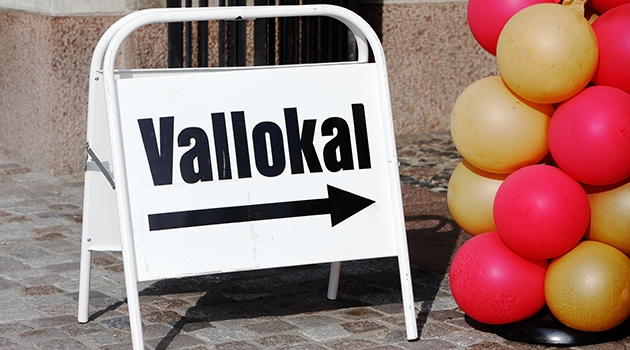Why go and vote in the autumn elections?
Column
COLUMN. Uncertainty is the fundamental existential condition of democracy. When we go to vote, we share that uncertainty about the future equally among us. We can reassess our decisions and judgements. As Professor of Political Science Sofia Näsström puts it, regular elections mean that we can grant ourselves the freedom to make mistakes and to begin again.
Government. Photo: Marcus Holmqvist
An election is a choice. What more is their to say about this autumn’s upcoming Swedish elections other than that we shall be making – a choice?
In fact, quite a bit.
Such as that uncertainty is the fundamental existential condition of democracy, something that is often overlooked in election analysis. In this context, political scientist Adam Przeworski speaks of “institutionalised uncertainty”; the results of a democratic election must be uncertain, or at least slightly unpredictable, otherwise there is no hope that democracy can change the nature of things. Why involve oneself in the democratic process when the outcome is preordained?
It is precisely this element of institutionalised uncertainty that is threatened in the countries researchers refer to as electoral autocracies, such as Hungary, Poland and, of course, Russia, which after the invasion of Ukraine is approaching dictatorship. The leaders of these countries are keen to shape the future to ensure that they remain in power. By attacking the freedom of the press, the independent judiciary, civil-society actors and academic freedom, they seek to predetermine the results.
That said, institutionalised uncertainty can also be weakened in established democracies, primarily through lobbying. While democracy promises formal equality and citizens are free to go and vote, because so much policy is agreed behind closed doors, the will of the people has little real impact. Once again, uncertainty about the future is circumvented.
And yet there is more to say about this autumn’s elections. Because, if uncertainty is the fundamental existential condition of democracy, and it is the task of the election to institutionalise the hope for change, why hold regular elections? Why go and vote, and then repeat the process in 2026? Because, just like any other culture you care to name, democracy needs rituals, specific, recurring rituals that guide us through an unpredictable existence. Or, more poetically, because democracy’s gotta have rhythm. The music of democracy sounds something like this: between elections it is a diffuse low humming – we wait, we ponder and we draw conclusions about our common political reality – and then, suddenly, the volume is turned up and the music becomes more dense, frenzied and bombastic. It is election time!
But there is more to it, because this need for the rhythm provided by regular elections is open to at least three interpretations. The most common is that, when we go to vote, we do so to demand accountability of our elected leaders. We check to see whether they have fulfilled their promises. If not, we reserve the right to replace them; we shall, as they say, “throw the rascals out”. Another interpretation is that, when we go to vote, we do so to remind ourselves of our primary political loyalty: to nation and the rule of law. Voting as a patriotic act. The more consensus we can muster in politics and the less conflict and division there is between parties and ideologies the better. We demonstrate that, as a sovereign people, we are united and strong.
The third interpretation – in my opinion, the true democratic meaning of this autumn’s elections – is that, when we go to vote, we share our uncertainty about the future equally among us and, if the world changes in some way that we could not foresee, we have time to change our minds. We can reassess our decisions and judgements. Hence, regular elections are not primarily about demanding accountability or affirming loyalty to the nation; they are about granting ourselves the freedom to make mistakes and to begin again. “Back then, I thought that coal was the answer, but not any longer. I want an environmentally friendly alternative.” This is the freedom at the heart of democracy.
Today, we find the world changed in a way we could not have foreseen just a few short months ago, and many of us would probably add that democratic rituals have long been out of step with the fundamental existential conditions of democracy. Of course, uncertainty about the future stretches beyond the horizon of national institutionalised elections; consider the environment, migration, the war, the pandemic or digitisation. Perhaps what we need is new institutions to deal with these challenges because, right now, for most of us the future seems more hostile than hopeful. The problem is that this feeling is ripe for exploitation by antidemocratic actors. As we speak, uncertainty is being rapidly transformed into fear and, as Iris Marion Young says, “fear eats the soul of democracy”. Or it is exploited to pit people against one another in a struggle for social status and financial security.
We will go and vote in the autumn’s elections. We will participate in the ritual because it is vital to the survival of democracy. But it is equally important to consider why we take part in the ritual.
An election is more than simply a choice.
Sofia Näsström Professor at the Department of Government.
Åsa Malmberg

